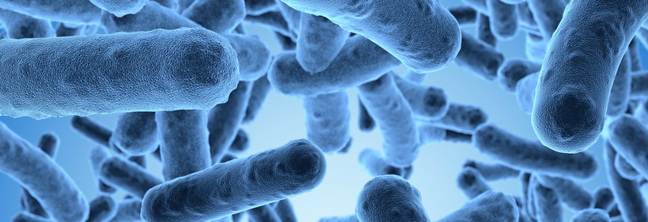Centers for Disease Control and Prevention (CDC) – at least 53 people were sickened by contaminated chopped romaine lettuce in an expanding E. coli outbreak last March, which now spans 16 states.
The said lettuce was sourced from the winter growing areas in Yuma, Arizona. People infected by the outbreak were ages 10 to 85 years old, 70% of which were females. At least 31 people were hospitalized, 5 of them developed kidney failure.
Thus, authorities have advised consumers not to purchase chopped lettuce from groceries and supermarkets, and if dining in a restaurant, they should confirm first if it isn’t the chopped lettuce sourced from Yuma, Arizona.
What is E. coli infection?
Escherichia coli (E. coli) is a very common bacteria found in the gut of warm-blooded microorganisms. There are hundreds of strains of E. coli, some types can cause illnesses in humans. E. coli is among the most common causes of abdominal pain, diarrhea, fever, and urinary tract infection (UTI). It is also another cause of other severe infections, including food poisoning, neonatal meningitis, and septicemia.
How does E. coli cause infections?
E.coli causes infection by producing toxins. The bacteria release toxins which bind to the lining of the gut, thus, causing symptoms like diarrhea, vomiting, and food poisoning.
A person can be exposed to E. coli through food contamination, including raw vegetables and undercooked meat (especially ground beef). Healthy adults normally recover from the infection after a week of treatment but children and older adults may suffer more and increase their risk of developing a life-threatening disease called “hemolytic uremic syndrome” a form of kidney failure. Around 10 percent of people are at risk of this complication, according to the World Health Organization.
Apart from contaminated food, anyone can get the infection from contaminated water. Many E. coli outbreaks in the US were caused by contaminated municipal water supplies. Private wells can be a source of the bacteria too, including lakes and swimming pools.
Person-to-person contact can also spread the infection, as well as contact with animals.
One is likely to get E.coli bacteria also while traveling to exotic places and countries. Here you can find some more detailed information on hygiene rules and hacks while traveling.
What are the symptoms of E. Coli?
The specific strain of E. coli which caused the multistate outbreak this year, is O157:H7 - a foodborne pathogen that causes food poisoning. Symptoms of E. coli 0157 infection may appear within 3-4 days after exposure to a contaminated source. They include:
- Sudden abdominal pain or severe cramping
- Nausea and in some cases, vomiting
- Watery diarrhea which begins after a few hours after a stomach pain
- Bright red bloody stools a day after, caused by the toxins’ damage to the intestine
- Fatigue and dehydration
- Fever
Some people infected by E. coli don’t experience any symptoms.
E.coli O157 is among the most dreaded strains because it only takes an incredibly low amount of the bacterium to invade the human body and cause the infection. Normally, thousands of microbial cells should enter the body to cause infection. However, with O157, only 10 E. coli cells can already cause serious infections that could result to fatal hemorrhagic colitis and hemolytic uremic syndrome.
Who are at risk of E. Coli infection?
Everyone is prone to E. coli infection. However, some people are more at risk than others:
- Young children and older adults
- People with low immune system
- People taking medications to decrease their stomach acid
- People who enjoy eating undercooked meat and drinking unpasteurized milk
How is E. coli infection treated?
There is no specific treatment for E. coli infection. Most people will get better at home, without medical treatment. However, it is important to drink plenty of water and other fluids to avoid dehydration.
But if the symptoms persist, it is essential to consult a doctor. Some cases of E. coli infection are very serious and would need medical intervention.
Patients should get plenty of rest. Contrary to what many people believe, over-the-counter medications and antibiotics are not recommended forms of treatment for E. coli infection because they can slow down the digestive system, which reduces the body’s ability to eliminate the toxins efficiently.
How can E. coli infection be prevented?
Prevention is way much better than cure. Fortunately, there are many ways to prevent the onset of E. coli infection. The key is practicing proper hygiene. Take these steps to protect yourself from the debilitating effects of E. coli in your body:
- Always keep your hands clean. Hand-washing is the most basic yet the best way to prevent the spread of bacterial infections. Experts recommend bringing medical grade disinfecting wipes anywhere you go to get a handy, effective sanitizing tool to get rid of various types of bacteria, including the dreaded E. coli.
- Practice proper food preparation. Fruits and vegetables should be prepared separately from meat, fish and poultry products. Use hot soapy water to clean knives, cutting boards, and countertops especially if they come in contact with raw meat and other fresh produce. Cook meat properly, especially beef.
- Be cautious with what you eat. Avoid eating at restaurants that do not adhere to sanitary guidelines. When buying food, check its freshness and quality. Reheat meals before eating as bacteria can proliferate within a few hours of exposure.
E. coli is among the most common types of bacteria that can cause a wide range of diseases to humans, from diarrhea to food poisoning and kidney failure. Thus, extreme caution and proper hygiene practices are necessary to avoid and prevent the spread of E. coli.




